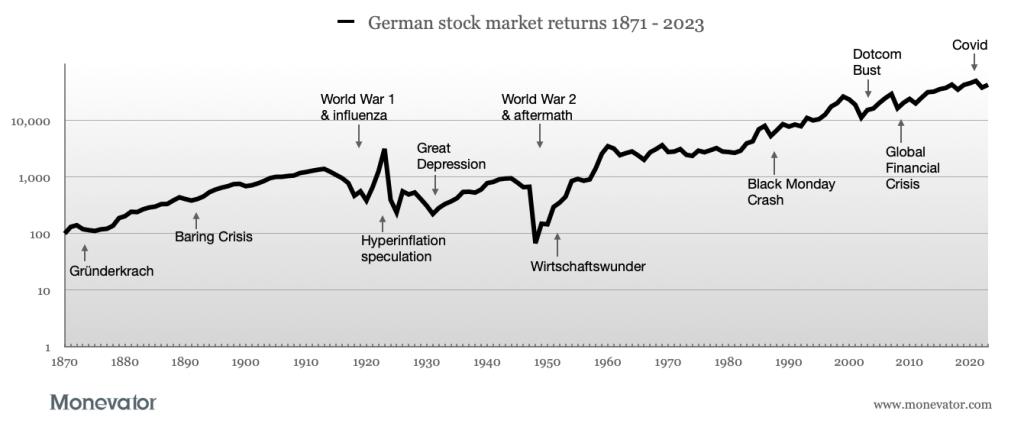
What caught my eye this week.
For anyone who owned US technology stocks that cratered in 2022 partly because society had not, after all, accelerated many years into the digital future, UK offices seem like a bit of a Twilight Zone.
Supposedly life is back to normal, so there’s less need for Zoom or Amazon – let alone ASOS or Peloton. The extra capacity these companies scaled-up to provide during the lockdowns is thus redundant. Cue plunging valuations, and mass layoffs of skilled tech sector workers.
That’s the narrative we’ve heard for at least six months. Yet I personally only know one former office worker who is back to doing (full) time.
Most of my friends with office jobs only do some days of the week. They say they are loathe to lose the freedoms they discovered during the pandemic.
I was getting my hair cut before an office reunion this week – and I had to admit to my hairdresser that I’d misspoken when he asked whereabouts. These guys don’t even have an office any more.
Elsewhere my daily walk to my gym takes me through one of those modern campus business parks that’s a bit like an activity centre for adult Tellytubbies. These days it has an underpopulated feel that reminds me of the childless playground in Children of Men.
There’s the coffee kiosk on the corner that now closes by midday on Friday. The once-crammed food truck event that’s become just a man in a van. The gym that has more student bros than workers.
Brent over
We have been discussing this in Weekend Reading every few months for a couple of years. A clear majority of readers who’ve commented have said they’d never go back to five days in the office – at least not without a fight.
I had put it down to either hope over expectation or else our special audience. But it’s proven to be both a common aspiration and proven out in wider statistics.
For example, a new report from property specialists Remit Consulting found that:
…while numbers coming into offices are slowly rising — the national average office occupancy of 34.3% in the week ending January 27 was the highest since the group began tracking the figures in May 2021 — there are few signs of a rush back to five days a week “presenteeism”.
Almost three years into the pandemic – with all its disruptions fading into the memory like a broken fever dream – and yet offices are still only a third full.
Meanwhile London’s Evening Standard this week asked every FTSE 100 company about its current working arrangements. The responses suggest:
…that the old Monday- to-Friday office week that was once the default is far from making a comeback.
The research found almost all respondents offer the option of flexible and hybrid working although there are some businesses that want people in for at least a certain number of days weekly.
It suggests that for most private employers the new normal is for workers to be in offices for between two and three days per week, often between Tuesday and Thursday.
Britain appears to be at the vanguard of this Monday-Friday refusenik movement. I’ve heard that chalked up to everything from our longer commutes, worse public transport, even worse weather, or more positively to our love of gardening.
One thing is clear though – if this changed working pattern continues to hold (and by now who’d bet against it?) then the ramifications will be massive. Surplus offices rezoned, new build homes designed with a study as standard, maybe a change in how we support (or don’t support) childcare.
But for my part as someone who discovered and championed this way of life two decades ago, I just wonder what took you all so long?
Have a great weekend!
From Monevator
Why a diversified portfolio needs more than just bonds – Monevator
A cheap portfolio of cheap assets – Monevator
From the archive-ator: How I tricked myself into financial independence – Monevator
News
Note: Some links are Google search results – in PC/desktop view click through to read the article. Try privacy/incognito mode to avoid cookies. Consider subscribing to sites you visit a lot.
UK households to suffer £4,000 blow to finances in 2023 – Guardian
MPC member Tenreyo believes UK rates are too high and may need to be cut – Guardian
What three luxury homes reveal about who owns UK real estate – BBC
UK trade deficit with EU hits record as Brexit frictions curtail exports – Bloomberg
Housebuilders have five weeks to agree to the Government’s cladding deal – Which
Nicola Sturgeon’s tax rises “will spark an exodus of wealthy Scots” – Bloomberg via YF
Getty Images sues AI art generator Stable Diffusion in the US over copyright – The Verge
What does a world with billions of old people look like? – Grid
Products and services
First five-year fixes under 4% since Mini Budget launched by HSBC – Guardian
Vanguard going all-in on direct indexing says CEO – ETF.com
Open an account with low-cost platform InvestEngine via our link and get £25 when you invest at least £100 (T&Cs apply. Capital at risk) – InvestEngine
Broadband and phone bills to be investigated by Ofcom – Sky
The extra cost of shopping at the convenience store – Which
Open a SIPP with Interactive Investor and pay no SIPP fee for six months. Terms apply – Interactive Investor
Fancy launching an ETF? Think twice [US but relevant] – Factset
The latest on the confusing rules about passports when traveling to the EU – Which
Bestinvest introduces free dealing on US shares [Beware FX costs] – This Is Money
Homes for sale with beautiful windows, in pictures – Guardian
Comment and opinion
All markets are uncertain – The Uncertainty of It All
Why everything you buy is worse now [Video] – Vox via YouTube
How to retire at 38 – Humble Dollar
Where do millionaires keep their money? – Of Dollars and Data
Entertainment versus investing – A Wealth of Common Sense
Do you know how to find lost pensions? – Which
Is hiking rates in the face of supply shocks counterproductive? – KoI
Risk and regret – Morgan Housel
The difference between active income and passive income – Financial Samurai
Deep dive into the past and potential future returns of the [US] 60/40 portfolio – CAIA
Academic evidence of insider dealing disguised by trading using ETFs [Research] – SSRN
Naughty corner: Active antics
The UK has more than its share of 30-baggers – Schroders
S&P 500 CAPE valuation and forecast for 2023 – UK Dividend Investor
The core principles of momentum investing – Validea
The AI bubble of 2023 – The Reformed Broker
Different levels of mistake: overpaying versus over-gearing – The Rational Walk
Short-selling mini-special
The art of shorting – Net Interest
Marc Cohodes short selling strategy explained – Macro Ops
Kindle book bargains
How to Make the World Add Up by Tim Harford – £0.99 on Kindle
The Making of a Manager: What to Do When Everyone Looks to You by Julie Zhuo – £1.99 on Kindle
Fooled by Randomness by Nassim Nicholas Taleb – £1.99 on Kindle
The Art of Statistics: Learning from Data by David Spiegelhalter – £1.99 on Kindle
Environmental factors
The enormous heat pumps warming cities – BBC
Battle of the botanic gardens – Guardian
The ESG investing backlash is having an impact [Video] – FT via YouTube
Astrophysicists propose mining the moon to send Earth-shading dust into space – Guardian
HS2 miscalculating impact on nature, wildlife studies find – BBC
How did millions of dead crabs wind up in the abyss? – Hakai
Off our beat
iPhones are made in hell: three months inside China’s iPhone city – RoW
Value investing – Indeedably
Climate ripples and the rise of the right [Superbly scrolling content] – NPR
The four horseman of the tech recession – Stratechery [Also see visualizations]
11 thoughts on living in 2023, from a follower of stoicism – Ryan Holiday
Are we racing towards an AI catastrophe? – Vox
And finally…
“The intelligent investor is a realist who sells to optimists and buys from pessimists.”
– Benjamin Graham, The Intelligent Investor
Like these links? Subscribe to get them every Friday! Note this article includes affiliate links, such as from Amazon and Interactive Investor.
The post Weekend reading: Office complex appeared first on Monevator.



